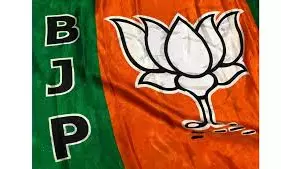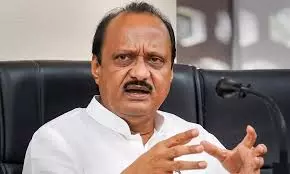Farmer leader Sharad Joshi dies
Shetkari Sanghatna (SS) founder Sharad Anantrao Joshi, an economist and former member of Parliament who is said to have been the first leader in Maharashtra’s post-Independence era to give a strong vo;
Shetkari Sanghatna (SS) founder Sharad Anantrao Joshi, an economist and former member of Parliament who is said to have been the first leader in Maharashtra’s post-Independence era to give a strong voice to farmers, breathed his last in his home at Pune on Saturday. He was 81. Joshi had not been keeping well during his last years and used to interact with his activists from his home. His organisation, Shetkari Sanghatna, had brought to the fore the grievances of onion farmers in Nashik.
He is survived by two daughters, one of whom is in the US and the other in Canada. It was in Nashik that the international economist staged his first agitation. He first brought a thought that farm products should get remuneration in proportion with production cost — a concept that is accepted widely now though not implemented. Many leaders of farmers across the country were strengthened and trained under Joshi’s leadership.
Joshi was born in Satara and first worked as professor of economics at the then-Pune University and later took up a lucrative assignment with the International Bureau of Universal Postal Union based in Switzerland in 1977.
Recalling the first agitation by Joshi, SS senior leader Arjun Tatya Borade said, “It began in 1980 at Pimpalgaon Baswant in Nashik and at Chakan in Pune with SS demanding remunerative prices for onion. The SS organised a road blockade on the Mumbai-Agra highway and Railway, stopping all traffic. Farmers refused cow down, after which firing took place in which 32 farmers were killed.”
Outside of the state, Joshi led and influenced farmers’ agitations in Punjab, Haryana, Uttar Pradesh, Madhya Pradesh, Rajasthan, Gujarat and, to some extent, Kerala, Andhra Pradesh and Tamil Nadu. “He was the first to point out the difference between India and Bharat. His every agitation was very innovative,,” said BJP leader Pasha Patel.
Once we blocked the national highway and gave a leaf and flower along with a list of farmers’ demands to every vehicle that was passing by. He even carried out agitation in Punjab during the Khalistan movement. He gave us farmers the strength to fight for our rights,” BJP leader Pasha Patel, who worked with him for 21 years, said. Patel was also made a president of the SS by Joshi.
Ex-SS activist and leading civil lawyer Nanasaheb Jadhav said that the late Joshi had donated all his property to the Shetkari Sanghatna despite opposition from all sides. “Maharashtra has lost a Sharad, who worked to give a voice to deprived farmers,” Jadhav said.
MP Raju Shetti, founder of Swambhimani Paksha, and Raghunath Patil learnt their trade from Joshi. When Joshi was ailing, the Swambhimani Paksha successfully led agitations for farmers, especially onion and sugarcane farmers in North and Western Maharashtra. “Mr Joshi’s movement was important, as the farmers had no voice in the post-Independence period. He not only brought awareness about getting a fair price for agriculture products in proportion to its production cost, but also taught gender equality to farmers. Many women farmers for the first time participated in his agitations which was a sea change socially,” senior journalist Pratap Asbe said.
After returning from abroad, Joshi had bought a small farm near Chakan in Pune and began farming. He studied all aspects of agriculture and realised that farmers were not getting the production cost and were making losses. This galvanised him and he started the movement, Mr Borade stated.
The late Joshi’s last agitation was at Nashik on 14 August 2014. Thousands of agitated onion farmers led by him had staged a rail blockade at Lasalgaon Railway station demanding that export curbs on onions like minimum export price of $ 500 should be removed. They demanded that onions should be removed from the list of essential commodities and farmers should be given their rights.



